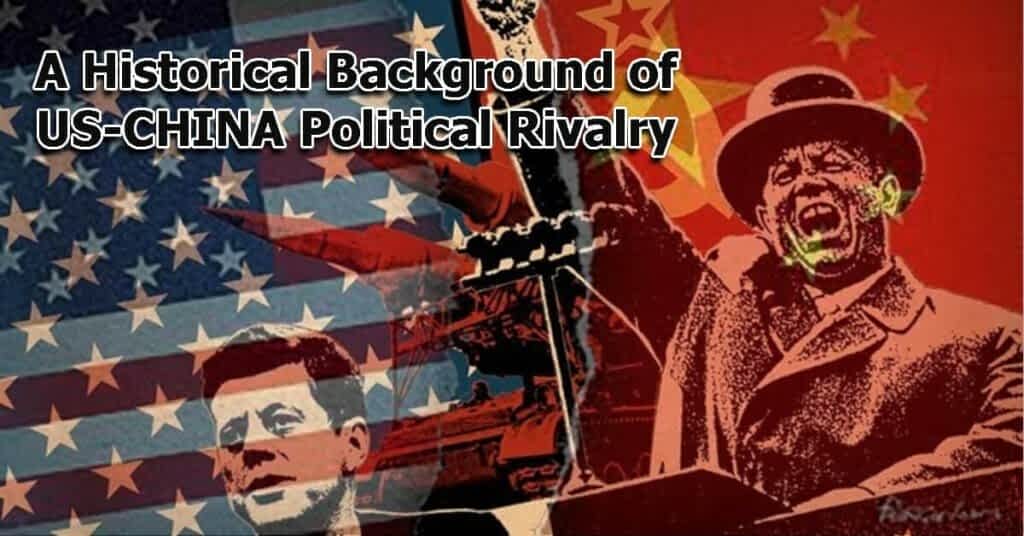A Historical Background of US-China Political Rivalry
US-China political relations have been different in different times under unavoidable fluctuation. Being two great powers, the political relation between two said atomic power nations are vital to be pondered over. On October 1, Mao Zedong announced the People's Republic of China, overthrowing Chiang Kai-Nationalist Shek. 10.000 troops flee Chiang For decades, the US has backed Chiang's exiled Republic of China government in Taipei to strike South Korea on June 25th.
UN, US protects Korea, US, UN, and South Korean troops near China's border. The three-year conflict ended in 1953 with an armistice between the UN, China, and North Korea. Defense treaty Chiang-Washington A nuclear war threat from the US in 1955. The USSR withdrew advisors in 1960 due to increasing industrialization. March 1969 saw unrest. As a result of the Sino-Soviet rift, Moscow is China's main officially welcoming the US ping-pong team to China on April 6, 1971.
Visiting China in July 1971, Henry Kissinger after Chiang Kai-permanent shek's death, the UN recognizes China. Nixon spent eight days in China in February 1972, visiting Mao and Zhou Enlai. They can discuss sensitive issues like Taiwan in the communiqué. Ten years to normalize ties Then-President Jimmy Carter severs diplomatic ties with Taiwan and totally Soon after, Deng Xiaoping visits America. Congress approves a measure enabling for long-term business and cultural collaboration. It does not directly violate the US' One China policy.
Reagan signs a third joint communiqué with China in August 1982. Unchanged China policy President Ronald Reagan's administration strives to improve Sino-US relations. In June 1984, Washington permitted Beijing to buy US weapons. Tiananmen Square students demand democratic reform and anti-corruption. Beginning in 1997, Clinton engages China constructively. Beijing's Olympic bid is rejected. Later, Clinton releases Wei and Wang Dan. Beijing extradites both.
Chinese military expansion is incompatible with peaceful growth goal, declared US Vice President Dick Cheney in 2007. Assaulting the US embassy in Beijing on April 22, Chen Guangcheng flees blind. Both officials agree Chen can stay in China and study law. Chen decides to seek asylum in America. Because Chen is a student, no one is in danger. At his Mar-a-Lago home in Florida, Trump will entertain Xi Jinping for two days. Xi said the US-China collaboration has increased understanding and trust. An expansion strategy for bilateral trade in goods and services such as cattle, poultry, and electronic payments was announced in mid-May.
Trump banned all non-US visitors from entering the US following a fresh coronavirus epidemic in Wuhan, China. During COVID-19 start, both China and the US blame each other for the outbreak. A Chinese Foreign Ministry official alleges the US military brought it to China, and Trump frequently mentions the "Chinese virus." In April, both countries' leaders softened their rhetoric. Pro-China Trump criticizes the WHO and cancels US funding. Two weeks ago, Beijing adopted a new national security statute for Hong Kong. Chinese officials have threatened to prevent US citizens and groups from entering Hong Kong. Washington has stated Beijing's South China Sea claims are mostly illegal. Consulate in Houston closed for espionage and theft. China denies genocide. Pompeo and other Chinese officials face sanctions for "crazy activities" that undermined US-China relations. In recent time, Biden and XI, both are not close to tie to understand what types of political phenomenon prevailed eventually.

